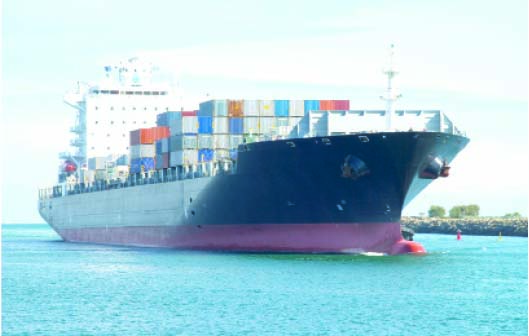By Foster Obi
Motoring/Maritime Editor
Although the history of Nigerian shipping dates back a century, it is still grappling with challenges associated with lesser nations.
Stakeholders in the industry believe that this has a lot to do with official neglect and ineptitude.
Most foreign shipping lines in Nigeria are over 100 years old. Elder Dempster is one of the oldest.
The shipping line was instrumental to the setting up of the Nigerian National Shipping Line (NNSL), which is now defunct.
Many foreign shipping lines have, however, weathered the storm of the numerous challenges in Nigerian maritime.
While they are still operating in the country and making profit, many believe the sector should have been ahead of where it is now.
Analysts have pointed out some of the problems hampering shipping business in Nigeria, among them unnecessary officialdom at the ports.
It was worse in the past when every government agency wanted to be in the ports.
Another challenge is that there is too much paperwork in the clearing processes.
Stakeholders noted that the world has upgraded to e-commerce and e-trading but some government agencies still believe in manual paper documentation, which poses serious challenges to the growth of the seaport system.
They advised reduction in man-to-man contact in the port clearance.
Another problem is infrastructure decay because a lack of investment. Apapa and Tin Can are the major active ports.
Shipping Association of Nigeria (SAN) Chairman, Val Usifoh, explained that “[Apapa and Tin Can] are more attractive than the other ports because they are more secure and their working system is more efficient.
“That is why some of the oil and gas cargoes have started coming to the Lagos ports.
The infrastructure problems are affecting our customers and that has contributed to the low volume of cargo throughputs at the ports.
“It’s part of the problem that led to the recent strike of truck drivers because they don’t consider it safe for them to move at night.
“How can you carry people’s goods worth billions of naira around in the night where there is no security? Even during the day, you have to be conscious of not being duped, not to talk of the night period.
“Another challenge affecting the port system, which shipping is an integral part, is the inconsistency in government policy. When businessmen want to make investment decisions, which are usually on a long-term basis, they need to be sure of what they are doing.
“However, due to inconsistency in government policies many businesses have folded up. These are the major challenges confronting shipping companies in the Nigerian maritime domain.
“International trade is at a low ebb, business is down in the maritime sector; and if business is down for the importer, it is down for the ship owner.
“It is a global trend, but we are feeling it more because we are an import-dependent nation.”
Stakeholders said shipping is about conveying goods from point A to point B predicated on the economic policies of the government.
When people cannot predict where to move their cargo then it is very difficult to programme the type of ships that shipping lines can bring to this part of the world. Giant vessels ply ports with modern equipment.
So if the government fails to invest in the development of new ports, it means very big ships will not be able to visit Nigerian ports.
And if they come, it means the cargoes have to be trans-shipped to smaller vessels due to the state of the ports.
Analysts sought focused and consistent investment in shipping so the country can reap from the multitude of resources God has deposited in the sector.













